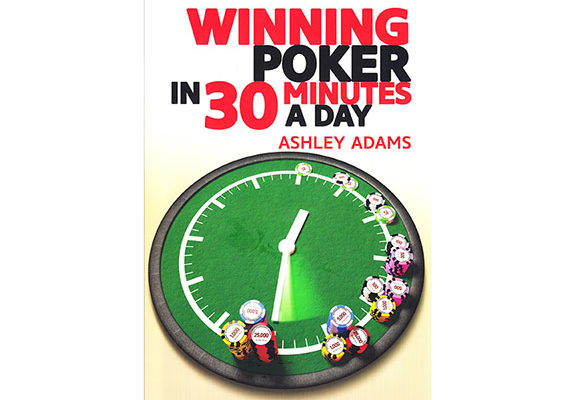Podcast: Play in new window | Download
Ashley Adams, host of the House of Cards podcast and radio show (Andrew was a guest in 2010!) and author of the new book Winning Poker in 30 Minutes a Day, returns to the show to discuss poker during Covid, finding underground games in foreign countries, and more.
In the strategy segment, Andrew discusses why betting into draws is overrated.
Timestamps
0:30 – Strategy
22:39 – Ashley Adams
Links
Play Optimal Poker
Play Optimal Poker 2
Jane Hitchcock interview
Pete Hautman
Ted Thackrey

Ashley Adams
Ashley Adams is the host of the House of Cards podcast/radio show and the author of Winning Poker in 30 Minutes a Day, Winning No-Limit Hold ‘Em and Winning Seven Card Stud.


Hi Andrew, great strategy section which addresses some confusion I too have had with the concept of there not being much value in betting into draws. One of your comments does raise another question though…:
you said that one of the benefits of low equity hands is that they can outperform their equity by bluffing, and that even if a bluff only has a 1% chance of working that still gives you more equity than the 0% equity you have if you check. My confusion is that if the bluff costs you more than 1.01% of the pot then you lose money on that bluff (similar to if you bet 1/2 pot and get called more than 1/3 of the time). This makes me think that the ability to bluff in and of itself isn’t necessarily profitable, as sometimes it’s costing you more to make that bluff than the value of the equity you gain by bluffing. Probably I’m just not very good at picking my bluff spots but I would love to hear you or Nate’s (or anyone else’s!) take on this.
Richard
It’s entirely possible I misspoke, but what I ought to have said is that if the EV of bluffing is even slightly positive, then they can easily outperform their miniscule equity. Of course as you say the EV is only positive if the bluff produces more fold equity than it costs to make.
Thanks for listening, and for prompting me to clarify this!
Thanks for taking the time to respond, looking forward to the net episode!